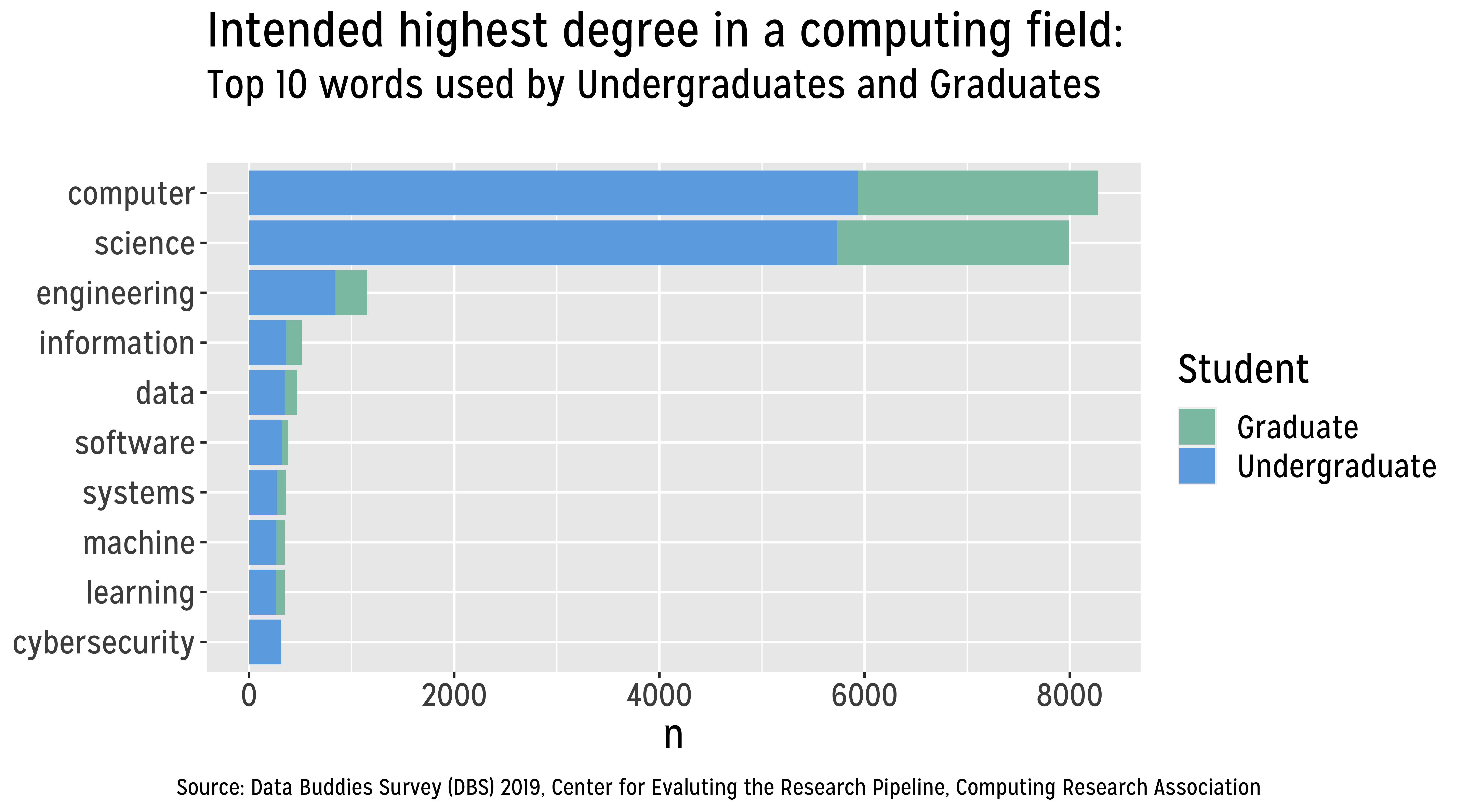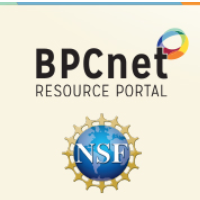Undergraduate and Graduate Students Indicate the Computing Fields in Which They Intend to Earn Their Highest Degree

The field of computing covers many sub-fields and specialty areas. Which of those sub-fields and specialty areas are those in which students most commonly intend to earn their highest degree? CERP analyzed the results of the Fall 2019 Data Buddies Survey (DBS) for undergraduate and graduate students to understand the computing fields in which these students were most interested.
Students were asked “Do you intend to earn your highest degree in a computing field?” and were invited to further elaborate the field in which they were interested in earning that degree. A total of 8,100 undergraduate students and 3,038 graduate students indicated their interest in earning their highest degree in a computing field, and additionally provided a free-response answer. Due to different ways of stylizing a field’s name (“computer science & engineering” vs “computer science and engineering”) and students providing multiple fields of interest (e.g. “computer science/cybersecurity”), CERP instead broke down each of these responses into their respective unigrams (N = 23,327; 383 unique unigrams) to analyze the most commonly used words in students’ responses. The resulting graph is filtered for the 10 most common words.
While these results are perhaps unsurprising, they are important to demonstrate current trends in the field. Future analyses will compare students’ answers from past years to detect whether there has been change over time.
Notes: The survey data analyzed for this infographic were collected by Center for Evaluating the Research Pipeline via The Data Buddies Project in 2019. CERP analyzed the free-text responses by splitting free-response answers into unigrams and visualizing the 10 most commonly used words.
 This analysis is brought to you by the CRA’s Center for Evaluating the Research Pipeline (CERP). CERP provides social science research and comparative evaluation for the computing community. Subscribe to the CERP newsletter here. Volunteer for Data Buddies by signing-up here.
This analysis is brought to you by the CRA’s Center for Evaluating the Research Pipeline (CERP). CERP provides social science research and comparative evaluation for the computing community. Subscribe to the CERP newsletter here. Volunteer for Data Buddies by signing-up here.
This material is based upon work supported by the National Science Foundation under grant numbers CNS-1246649, DUE-1431112, and/or DUE-1821136. Any opinions, findings, and conclusions or recommendations expressed in this material are those of the author(s) and do not necessarily reflect the views of the National Science Foundation.








